Looking for some summer reading? Here are a few. Some mysteries, a few non-fiction too.
#1 – The Unwanted Guest by Shari Lapena
I enjoyed this book. It had a “Clue” feeling to it and it was an enjoyable mystery. Solitude, trapped in a remote hotel with no power, stormy weather, a bunch of strangers…It was good until the end. The ending was a bit abrupt and fell a little flat for me, but overall I would recommend it.
#2 – The Garden of Small Beginnings by Abbi Waxman
I really enjoyed this book. I found it quirky and charming and very funny. Lili is a widow with two girls. It’s been 5 years since her husband died and she basically lost her mind and had to heal and come back to the land of the living for her girls. She is still in a fragile place. For work, she joins a weekly gardening group and makes a group of new friends and falls in love.
3 – Fire in Paradise: An American Tragedy by Alastair Gee, Dani Anguiano
Paradise, California was a small mountain town, a “sanctuary” for people who couldn’t afford houses in the Bay Area. The people that lived in Paradise knew they were in a fire zone. And they thought they were very prepared for it.
“Evacuations would proceed based on which areas were affected, and during a disaster, cars would be permitted to use both lanes on certain roads to flee. Paradise sent out “know your zone” mailers to residents. It also established a reverse-911 alert system, which would call residents with an automated message in the event of a disaster.”
When the Paradise/Camp Fire happened, they didn’t think it would get to Paradise. It was in a different area, the fires usually moved in a similar fashion. But this one was different. It jumped a river–something that they never thought would happen. And then the reverse 911 alert system only worked if you had signed up for it. Many people did not.
“The flames, when they arrived, were unstoppable, far beyond the capacity of any firefighter to control. In places they burned as hot as a crematorium. Cars turned into rivulets of molten metal. Homes became matches that set fire to the next…apparitions only seen in the most extreme of blazes: fire tornadoes.”
Some people stayed and tried to save their houses–but perished. Some people decided to flee on foot–especially after they saw the gridlock of cars trying to escape. There were only a few roads out of town and to safety.
“…it birthed a remarkable fire tornado, a product of the high temperatures and hot air from the fire creating a column of superheated air that began to rotate as it rose. The twister was 1,000 feet wide and tore through the area, uprooting trees, tearing roofs off houses, and throwing power lines and cars into the air. Whirling at 143 mph, it reached temperatures of 2,700 degrees and heights of 17,000 feet. A firefighter died when the tornado snatched his 5,000-pound truck and flipped it down a road.”
The book profiles many townspeople. People who fled, people who stayed, people who were fighting the fires. It was absolutely riveting. There is so much in this book I can’t do it justice describing it. The descriptions of the fire was so compelling and frightening.
” “It sounded like a freight train going around. It sounded. . . . It had this other sound too, more evil,” she said. “Oh God, I can’t even imagine what I could describe it as close to,” she added. “There was nothing earthly about it.” “
I felt like I was holding my breathe the entire time I read this book. There was one point where trapped people huddled in the middle of a giant parking lot because it was the only space that didn’t have structures or trees and they used fire blankets and hoped that the fire just jumped over them. Also–this parking lot was across the street from the gas station. Wow.
I recommend it SO much. It is SOOO good.
4- On Tyrrany: Twenty Lessons from the Twentieth Century by Timothy Snyder
I think I heard an interview with this author on Rachel Maddow (maybe Fresh Air? can’t remember now) and his book sounded interesting. It is. It’s also terribly frightening. We are at the cusp of democracy crumbling. I am not being hyperbolic.
“Aristotle warned that inequality brought instability, while Plato believed that demagogues exploited free speech to install themselves as tyrants.”
“Institutions do not protect themselves. They fall one after the other unless each is defended from the beginning.”
“It took less than a year for the new Nazi order to consolidate. By the end of 1933, Germany had become a one-party state in which all major institutions had been humbled.”
“Some of the Germans who voted for the Nazi Party in 1932 no doubt understood that this might be the last meaningfully free election for some time, but most did not. Some of the Czechs and Slovaks who voted for the Czechoslovak Communist Party in 1946 probably realized that they were voting for the end of democracy, but most assumed they would have another chance.”
History is indeed repeating itself and we are watching the fall in real time. This book is short, a very fast read, and very scary. Read it. Be prepared.
5 – Leaving Isn’t the Hardest Thing by Lauren Hough
I enjoyed this book a lot. Particularly the first half of the book, it really sucked me in and kept me reading. Her writing style is great and the topics she addresses in the book are interesting.
“…I told him, “My parents were missionaries.” It’s like the pronoun game, for cult babies.”
“My parents had come to this place because they’d been seeking something more meaningful, a way to do good, to help. My dad didn’t want to kill Vietnamese farmers on the other side of the world to save nothing. By the time they tried to send him, the war was already over…So they joined a commune, a community where people shared what little they had, where people spoke of love and peace, a world without money, a cause. A family. Picked the wrong goddamn commune. But who didn’t.”
While she was raised in a cult, the book was less about that, and more about her life and struggles in general. Leaving a cult, being gay, joining the military, leaving the military after years of abuse/rape/harassment, her struggled with depression, and she clearly never had any real upbringing.
“A cult is your textbook abusive relationship—love-bomb, isolate, create dependence, and your victim won’t have the power to leave, even if staying in the relationship means buying into the new Gospel of David Berg.”
“Kids had a purpose—cleaning the homes, taking care of the other kids, memorizing Bible verses, and studying Family doctrine to prepare for the End Time.”
If she’s struggling as an adult, I can see why. Growing up in a cult. Moving to different countries on a regular basis, not having any proper schooling, etc. How could someone grow up to be a fully functioning adult with those landmines to navigate?
“My DD 214, my service record, says, “Homosexual admission.” It leaves out the other part, that the Air Force was never going to let me leave Shaw Air Force Base, that they didn’t care who’d been threatening me, who’d torched my car, or what that person might do next. The paperwork doesn’t say that they would never accept me, that they gave me no choice…I didn’t realize no one outside the military knew gays were getting kicked out of the military at ten times the rate before Don’t Ask, Don’t Tell…We ended up in South Carolina, with “HOMOSEXUAL ADMISSION” stamped on the discharge papers we’d have to show anytime we applied for a job.”
TRULY awful. I was so mad reading about her experiences in the military. She doesn’t describe being raped by a fellow officer but she did write a bit about the aftermath:
“I was lucky I was stationed in California then. You get pregnant in a backwards state or country where people think a woman should raise her rapist’s kid, getting an abortion can be a hassle, if not impossible. I didn’t have to wait. I didn’t have to take extra leave and get permission to miss school or watch an ultrasound to make sure my nightmares had appropriate visuals.”
I’ve been following her on Twitter for awhile now and I think at some point she got into some kind of twitter war with people and they flooded GoodReads to write crappy reviews and bring her rating down. I totally don’t get that. A book should be based on the book. Leaving a zillion 1 star reviews to spite someone is just shitty. And not only that, I totally disagree. Her book is good. It’s a good, fast read.
6 – Preventable by Andy Slavitt
Andy Slavitt worked for Obama and tried to help fix the disaster of the ACA rollout. He is an “insider” with a lot of first hand information from behind the scenes, even though he wasn’t part of the Trump administration. The book is a pretty fast read and reveals the behind the scenes stuff and all the things that went horribly wrong during the pandemic. It was informative, interesting and seemed well researched.
“She described COVID-19 as a lonely disease “where you can’t visit the person you love. You can’t be at their bedside. You can’t even meet the people who are taking care of them. You can only talk to them on the phone. And it’s just against everything that we’ve ever believed in for family and values and who we are as a country.”
“This virus is aiming to thin the herd of the old, the poor, and the sick.”
He writes about the countries that did REALLY well during the pandemic, and then focused on everything America did wrong. And we apparently did everything wrong.
“We were like people who had never seen fire before and who wouldn’t believe it was dangerous without sticking our hands in the flames first.”
“That will never work. Studies have shown people will listen to you for about two weeks, but if they don’t see what you’re telling them, they will begin to rebel. And they might rebel at exactly the time that the virus comes to their location. This is a very big country. You’ve got to manage this regionally and balance people’s needs with the best public health response. More people will die, but that’s the only way things will work.”
“Hong Kong had two important weapons the United States didn’t: pandemic experience and the will to act collectively. The city of 7 million had been through a flu outbreak in 1968 that ended up killing 1 million people worldwide, and they’d been through SARS in 2003. Even though the new Chinese government in Hong Kong didn’t begin its own response quickly and was not widely trusted, most people began wearing masks—without a mandate—by the end of January.”
During this whole pandemic, and reading the book, I couldn’t stop thinking about how if we’d had true lockdowns nationwide, we might have been able to be more like South Korea and New Zealand. What is most disappointing is that I don’t think anyone has “learned” from the lessons of the pandemic and we will be doomed to repeat this in the future.
Happy Reading!
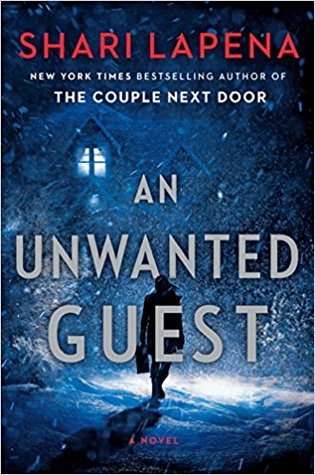
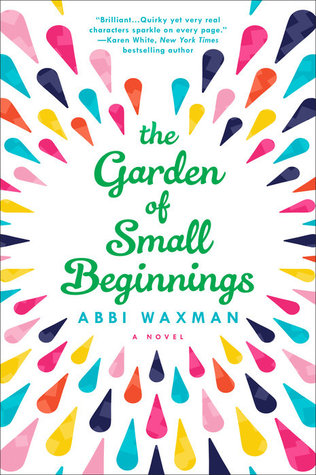
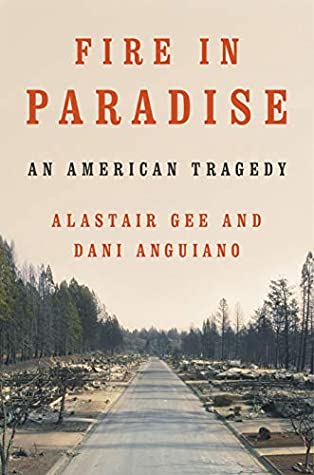
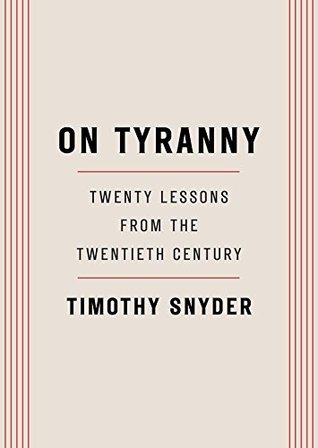
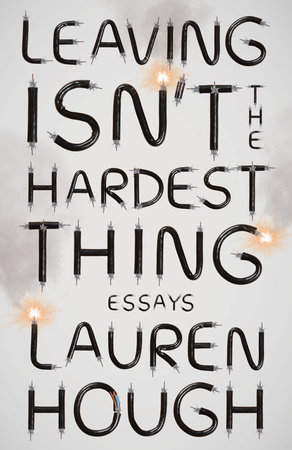
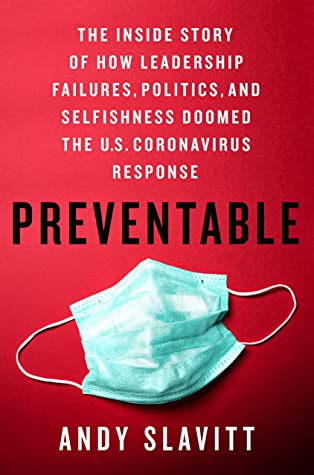
Leave a Reply